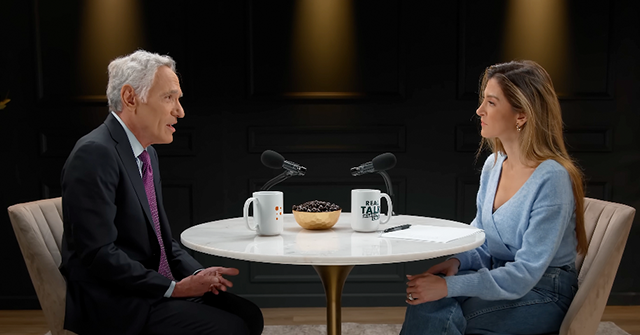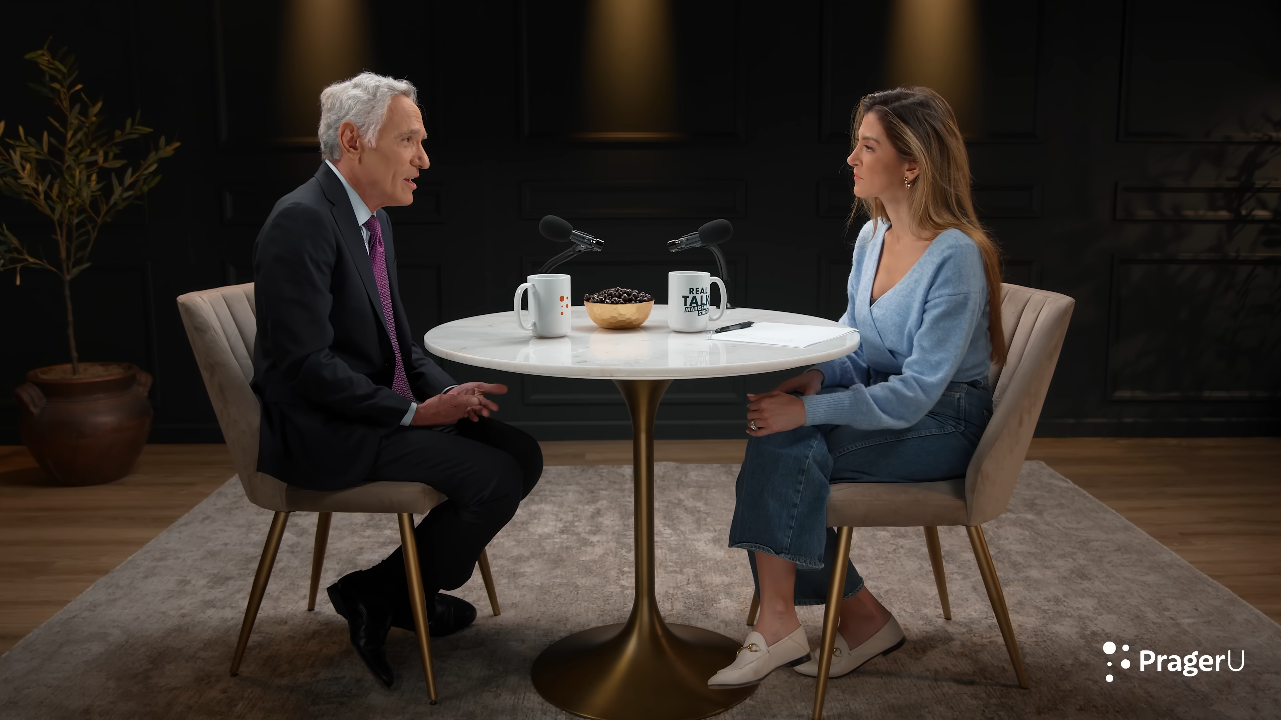


Dr. Scott Atlas, widely censored for his positions on COVID, sat down with PragerU CEO Marissa Streit to talk about his dissenting data-based views during the pandemic, what the Centers for Disease Control (CDC) got wrong, and whether the medial establishment can regain the public’s trust.
Streit recounted that a previous interview she conducted with Atlas — in which they discussed the COVID pandemic, vaccine mandates, masking, and lockdowns — was censored.
“It’s sort of fascinating that there was any censorship of it because all we talked about was the data,” Atlas said. “[It’s] a bit frightening to me that we’re living in a country that refuses to allow facts to be said. It’s worse than just refusing to let dissenting views be heard, because it’s actually suppression of fact. We can’t have a society that pretends that scientific data doesn’t exist.”
Asked whether he ever expects an apology from those who attacked him over his now vindicated positions, Atlas expressed doubt “because it takes integrity to admit you were wrong, and they apparently don’t have integrity.”
He shared that the faculty senate at Stanford University issued a censure of him, partly because he cast doubt on the usefulness of masks, which have since been shown not to stop the spread or protect the wearer during a viral respiratory infection. “There was an effort at Stanford by some rational people to get them to rescind that censure recently, and they voted that down.”
“We need to also adjust ourselves,” he continued. “We don’t give up saying the truth, but we also need to sort of accept that there’s a group of people that will not admit they’re wrong, and then we have to figure how do we get our message out. And that is by doing things like you’re doing here at PragerU and I keep speaking.”
Dr. Scott Atlas and PragerU CEO Marissa Streit. Click the image to watch the full interview. (Courtesy of PragerU)
Atlas stressed the importance of training young people early in their careers to “embolden them that the truth matters.”
“I think most of them want the truth,” he said. “They stand for the truth. We have to get rid of the fear of speaking out.”
He noted how ironic it was that the CDC assumed the role of arbiter of truth during the pandemic but got so much wrong, leaving public mistrust in its wake.
“I like to say the era of trusting people or organizations based solely on credentials or titles must be over,” he explained. “We need to be responsible adults for ourselves, for our children. We can read the information, we can discuss it, and we can figure out what’s correct…. But, you know, we need a free society to have the debate because if you’re afraid of the debate, it means you’re afraid you can’t win the debate.”
Streit asked Atlas if he is optimistic now that Dr. Jay Bhattacharya has been picked by President Donald Trump to lead the National Institutes of Health (NIH), and Dr. Marty Makary has been tapped for the Food and Drug Administration (FDA).
“I’m cautiously optimistic,” he said. “Frankly, it’s a venomous atmosphere. The so-called Deep State is real.”
But, he added, that “it’s a totally different world” between Trump’s first term and his second term in terms of public support. “The support by the people is very persuasive to the opposition party,” he explained, adding, “I will include the media. The media is part of the opposition to the Trump administration.”
He also noted the important role that Twitter (now X) now plays in allowing free speech on these topics. Atlas describes X owner Elon Musk as “the most important person in my lifetime for freedom.”
Atlas called on the NIH, FDA, and CDC to become more transparent, to help rebuild the public’s trust in these institutions. He also wants to see a different process for research funding.
“We need to have some accountability for the funding,” he said. “This is an idea I have put forth — and I’ve heard Jay [Bhattacharya] also say — which is that we have 15-plus academic medical centers and universities that get over half a billion dollars per year in NIH funding. They need to ensure that they’re [allowing] free speech, free scientific debate. The essence of science and research is the scientific debate. And if they’re forwarding that with faculty censures, for instance, why would they be entitled to U.S. taxpayer money at the tune of $500-, $600-, $700 million a year every year?”
He also wants to break the revolving door between the directors of HHS, FDA, NIH, CDC, and the private companies that they regulate. Atlas said some people have left their government roles and were immediately on the boards of the companies that they regulated.
“That’s unethical,” he said. “I’ve proposed a five-year delay from when you can work in government and then go work as an employee or on the board of the companies in the health sector.”
“We need to restore trust,” he concluded. “There’s no magic bullet to that, by the way, because it’s very damaged, and again, like I say, rightfully so.”

